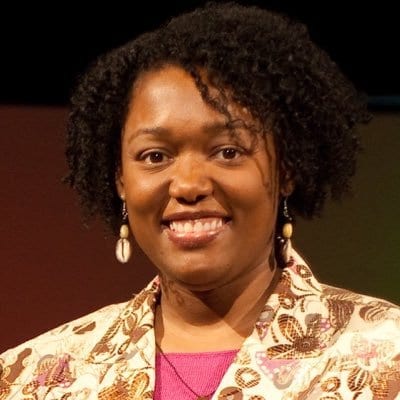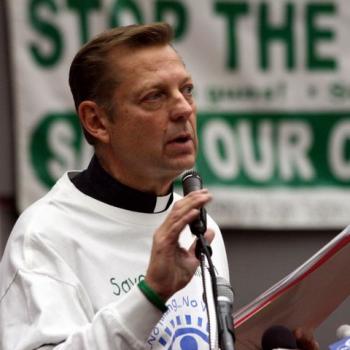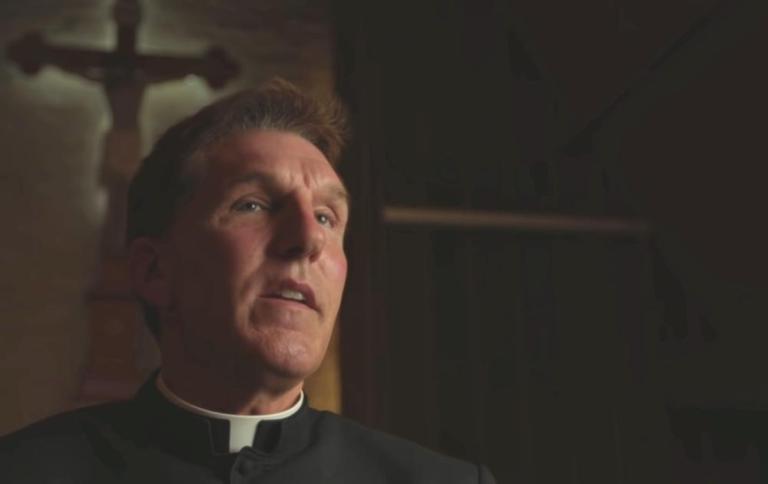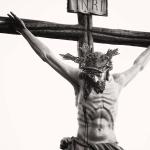
Last week, I interviewed Gloria Purvis, the lead host of EWTN Radio’s Morning Glory show, about some of the pushback and vitriol she was receiving online for her outspokenness on systemic racism, police brutality, the connection between anti-racism and pro-life and the Catholic response to bigotry.
A day after my interview with Purvis was posted online by Our Sunday Visitor, the news broke that the Guadalupe Radio Network, which is EWTN’s largest affiliate, had dropped Morning Glory from its lineup. The network’s stated reason was that the show had become increasingly “uncomfortable” to listen to, and that there was a “disconnect” between Purvis and the show’s co-hosts.
Several people blasted GRN for what they saw as an attempt to silence an outspoken black woman who made white audiences uncomfortable for talking frankly about a difficult subject. For her part, Purvis vowed to not back down or to stop speaking out on difficult topics like racism in light of the Gospel.
Also, in my Q&A with Purvis last week, she expounded upon some topics that didn’t make it into the online version of the story. With my managing editor’s permission, I’m sharing Purvis’ quotes that ended up on the cutting room floor, which I think you will find further illuminating and thought-provoking.
On attempts by some people to highlight George Floyd’s prior criminal record
“Instead of dealing with the horror that’s in front of them, we have self-identified devout Catholics who want to say, ‘This man did this’ and ‘This man did that.’ They want to further destroy his humanity rather than deal with the cruel injustice that happened. And what I’m seeing in that is a way to deflect from the real issue of police brutality, which just doesn’t mean killing a person but also the brutal response of police to people, such as the unnecessary escalation of force against people that we see in our communities… So I think it’s different in that we have in [the Floyd] video tape.The more they want to judge and the more they want to talk about this person as if he wasn’t a child of God, as if he wasn’t worthy of his life being protected, the more they bring judgement on themselves. I really believe that.”
Racism is a spiritual disease that degrades everyone it touches
“Many people think of racism as something negatively impacting Black people. I want to say it terribly impacts white people as well. They themselves tear down the image of God within them, the capacity of love that God gave them. It is destructive of their humanity as well. I think about how it’s deformed them, and of course people think, ‘Oh, I’m not a Klansman. I don’t wear the hood, therefore I’m not a racist.’ That’s not what we’re talking about. It’s also the other ways in which people are simply unloving and charitable, and they don’t question why is it they have those particular attitudes that they do have or their interior disposition to their fellow human beings. They should have serious interior questions, and confess those kind of sins in the confessional. They should confess those things because that’s the only way to rid themselves of that kind of (sin). Don’t let the Devil get that foothold. Don’t let him remain there. Be able to expel him through the sacrament of reconciliation and receiving the Eucharist, and having a fervent prayer life. Really pray for God to show that brokenness and heal you.
On what white Catholics can do to counter racism
“People are fearful and may not know what to say. When you see wrong and you know its’ wrong, just say something. Encourage people to be better, to do better. That’s the only way it’s going to get better.
“We should also be challenging our priests and seeing if in the way Father speaks, is he adding to the problem or is he helping to ameliorate the problem? I’ve had so many black Catholics talk to me who are just crushed about what’s happening in their predominantly white parishes; the coldness, the lack of concern when protest marches come through, how the pastor makes clear that they’re going to rope off the parish yard because they don’t want anything to do with those people. Instead of seeing it as an opportunity that maybe we should be out there with cups of water and masks, to see they have a part to play in setting the tone for these marches for racial justice. Imagine if we had our own [march for justice] where there is a crucifix leading our march and our prayers. We have a voice. I think of the Catholics of old in the civil rights movement. ”
Purvis’ experience with racism in church settings
“Having gone to churches elsewhere, once I left the South, I went to a predominantly black church in South Carolina, leaving and going to churches outside of that, that’s when I began to see that we had a real problem in the Church too. That’s when I unfortunately began to realize, “Oh these people don’t see me as a child of God unless I can only behave in the ways in which they think I should, which is to be quiet and only affirm everything they want to say and do.” I can’t have an opinion of my own. I can’t have a voice of my own. I can’t have a worship style of my own.”
“All those things in churches you might see that have their own cultural style, like maybe hand-clapping during Mass if the music is Gospel, that’s considered not reverent or holy. All these expressions that might not fall within polyphonic chant, which is beautiful and there’s nothing wrong with that, there’s so many ways in which people express their love and reverence for God, but people mock them and say these things are gross. There are some things that are beyond the pale, but that’s not necessarily a cultural thing. It’s not limited to any one cultural group per se. The songs, the music, the hand-clapping, drums, guitar; none of that is in and of itself beneath worshiping God. These are the gifts of the people and they bring it to the Church. But not everybody sees those things as gifts.”
On some white people’s resistance to discussing systemic racism
“They’ve never had anyone say to them, ‘What do you think [systemic racism] means’ If were true, what would you do?” What you see if people stubbornly entrenched and valuing their own comfort. And we know as people who follow Jesus, it’s not a comfortable walk. I remember St. Theresa of Avila saying, ‘Prayer and comfortable living were incompatible.’ Boy, do I understand what she means.”
The nexus being between being pro-life and anti-racism
“I don’t know why people think the answer to racial justice is to be less concerned about life. The answer to everything is to be more pro-life, not less. We have the capacity to love. It’s like telling someone that if they have more children, they’re going to love them less. No. God has given us the capacity to love. It’s just a matter of whether we’re willing to try.
“What do we need to change in our culture to make it more culture of life and love? Which is the goal, right? You can’t tell me you can protect a child in the womb and turn a blind eye to a man dead in the street, killed by an agent of the state. Both are legalized forms of violence. As people of God, we should be standing up to say, ‘My Lord and my God, we never want that to happen again. Help us root out that evil and rid our society of it.'”
On Catholics who focus solely Black Lives Matter Inc., when discussing the modern civil rights movement
“It’s unfortunate that in our Church… I think what happens is people start to get uncomfortable by who else might be chanting for this kind of justice. The fact of the matter is that it shouldn’t be what they did that keeps you away from the issue. It should be what Jesus desires to get you to the issue. I can’t imagine standing in front of the Lord and Him asking, ‘Gloria, why didn’t you do anything about racial justice?’ And me saying, ‘Lord, those heterodox people and Marxists were all over there.’ And then Him looking at me and saying, ‘Well, didn’t you see me too?’ It’s just so absurd that I’m going to let other people stop me from following Jesus. What kind of disciple would I be? How can say I love Him? How can I say He’s my friend? How can I say He’s my God?”
“Also, I hope Catholics know that when it comes to religious liberty, we certainly lock arms with people who would most definitely be considered [heretics] in our Church because they don’t believe what we believe. But guess what, we have a common goal for religious liberty so we work and lock arms with these people. So all of a sudden to say that we can’t work on racial justice because not everybody there agrees with our point of view is just silly. That’s not how we work or do things in the cause for justice. And frankly, in the pro-life movement, we work with plenty of people who support artificial contraception, vasectomies and things like that, but we don’t say, ‘We can’t work with you on pro-life issues.'”
On the origins of her pro-life convictions
“I was always pro-life, but not that out-of-the pew active kind of pro-life. My husband and I went to Mass at St. Augustine Church in Washington D.C., the mother church of African American Catholics. We were saying the Creed, and when we got to ‘The Holy Spirit, the Lord and Giver of Life,’ it was a BOOM moment, like in a flash, this real awakening and mini-chastisement that gave me a lot of knowledge and desire to learn what the Church taught and why. I think it’s also why I have such a heart for racial justice as well. The life we have is God’s gift to us. The life of our neighbors, all that, we have a responsibility to give them what they are due. To see injustices happen to people should trigger us something in us. The love and care we have shouldn’t be limited to one portion of humanity.”














